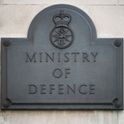North Korea's nuclear test alters the balance of power in northeast Asia. In every other field—economics, culture, diplomacy, biotechnology and IT, to name a few—the gap between the impoverished citizens of Kim Jong-Il's regime and their world-class southern kinsmen could hardly be greater. The north's ageing conventional military capabilities have also fallen far behind the south. But now North Korea boasts of possessing the ultimate equaliser. The suggestion that the explosion was merely a large quantity of TNT cannot be dismissed entirely without air sampling data, but it is implausible that North Korea would fake what was a technical failure judging from the sub-kiloton yield—eight to ten times less bang than what would have been planned.
Despite the successful test, it is questionable whether North Korea has the means of delivering a nuclear weapon. Miniaturising the weapon for delivery with a ballistic missile is no easy task. The bomb design that Libya received from the AQ Khan network, which North Korea may have bought as well, would not fit on North Korea's Scud, Nodong or Taepodong missiles. North Korea had trouble enough getting the bomb to work at all, let along miniaturising it. Any plane or ship that North Korea outfitted with a nuclear weapon for a suicide attack would be detected and stopped before it reached its intended target. The only way North Korea today could deliver a nuclear weapon would be overland to the 38th parallel border with South Korea, an unlikely scenario in which casualties and fallout would affect as many Koreans in the north as in the south.
The test will strengthen the new Japanese prime minister Shinzo Abe's push to give Japan's Self-Defence Forces a proper military role that would be normal in any other country but that is unfairly cast as "remilitarisation" by many Chinese and Koreans. The key question is the extent to which North Korea's test will strengthen those inside Japan who argue that the country should consider its own nuclear weapons option. The answer is probably that going nuclear will remain a minority preference as long as the Japanese believe they are covered by America's nuclear umbrella. The Japan-US security alliance is stronger than ever and America is speeding up delivery to Japan of Patriot missile defence systems that can provide protection to individual locations.
China regards the test as an indirect threat, in that it will spur a Japanese defence build-up, heighten regional tension and could set in motion a series of reactions leading to collapse of the North Korean regime and an outflow of refugees to China. Chinese leaders are furious that Pyongyang pays no attention to anything they say. Having had its tail tugged before, China is ready to turn tiger on its uncontrollable neighbour.
The political impact of the test has therefore been to draw together North Korea's interlocutors in the comatose six-party talks, restoring unity to what has been an increasingly divergent set of policies. South Korea and China are beginning to reconsider their soft approach and to realise that long-term strategies of seeking to change North Korea through investment and trade are not sufficient to cope with the immediate nuclear threat. Meanwhile, they are concerned not to push North Korea over the brink in a way that would cause it to resume the Korean war or, more likely, implode. They will therefore resist any military action or overly punitive sanctions in response to the test.
North Korea's neighbours can all help in another way in averting America's greatest concern: that North Korea would sell or barter its nuclear weapons to another country or, God forbid, a terrorist group. It is likely—although not conclusively proven—that North Korea was the source of the 1.7 tons of gasified uranium that Libya purchased from the Khan network in 2001. North Korea's record of nuclear commerce, its financial crisis and its eagerness to sell missiles, weapons and illicit goods to any prospective buyer make the nightmare scenario a real possibility.
UN sanctions will not persuade North Korea to dismantle its weapons but they can bolster a containment strategy. China's support will be crucial to a policy of requiring ships and planes going to and from North Korea to be searched for nuclear material—and, while inspectors are at it, why not contraband as well? Participation in such a strategy would be the best way for China to co-operate strategically with the US in addressing the growing North Korean threat.










